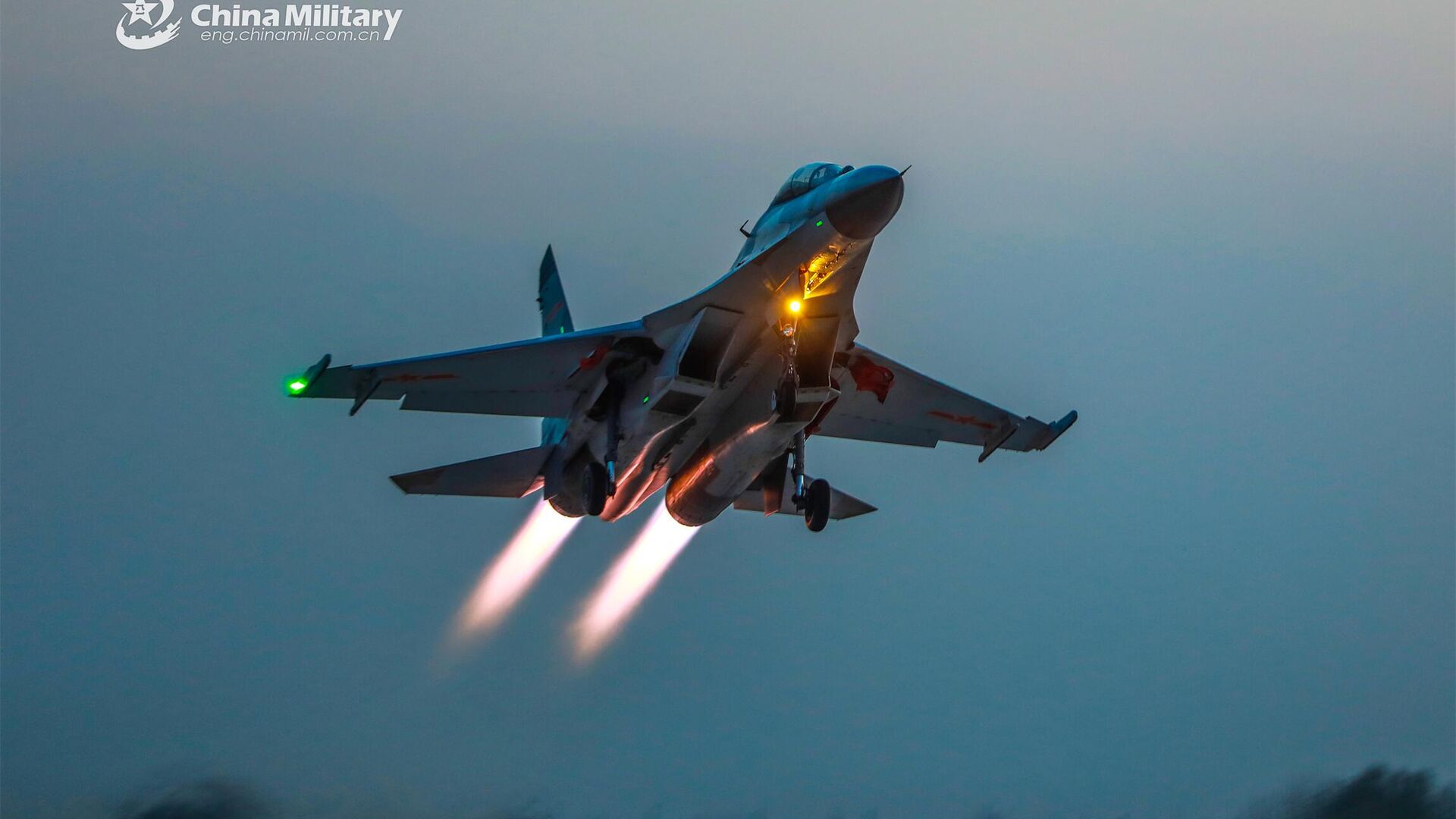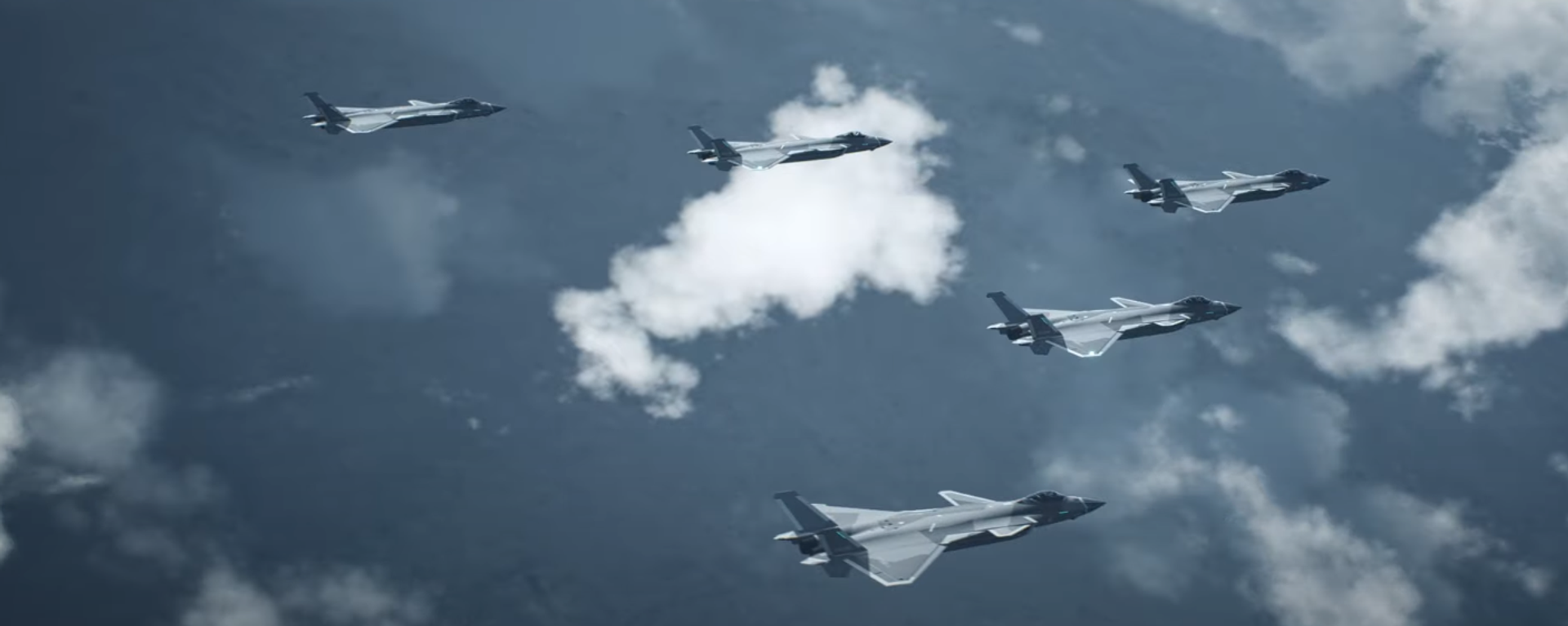Chinese Training Aircraft Provide New Foundation For Aviation Forces
09:50 GMT 09.07.2024 (Updated: 12:48 GMT 16.07.2024)

© Photo : eng.chinamil.com.cn/Photo by Yuan Hua
Subscribe
Acting as a foundation in building strong aviation forces, China's training aircraft are sophisticated, reliable, of outstanding performance, and can be built in large quantities, with one of the top products, the intermediate trainer jet K-8, having won a 70 percent international market share, the Global Times learned recently.
The developers made the remarks when the Global Times recently visited the Jiangxi Hongdu Aviation Industry Group Corporation Limited, a subsidiary of the state-owned Aviation Industry Corporation of China (AVIC) in Nanchang, East China's Jiangxi Province, which is China's main developing and manufacturing base for trainer aircraft.
Pei Denghong, a chief designer at the aircraft design institute of AVIC Hongdu, told the Global Times that training aircraft generally account for about 30 percent of an air force's total aviation inventory, as pilots are the true mainstay of an air force's combat capability, playing a leading and decisive role in modern warfare.
Pei Denghong, a chief designer at the aircraft design institute of AVIC Hongdu, told the Global Times that training aircraft generally account for about 30 percent of an air force's total aviation inventory, as pilots are the true mainstay of an air force's combat capability, playing a leading and decisive role in modern warfare.
"The development of fighter jets means transforming advanced technology into high combat capability, while the task of flight personnel training is entrusted to trainer aircraft. Training aircraft are the hardware foundation for training flight personnel. The flight training system is specially designed and composed of trainer aircraft of different levels according to the requirements of pilot training," Pei said.
China now has the CJ-6 as the basic training aircraft that enables introductory training, the K-8/JL-8 as the intermediate training aircraft that enables training for primary flight skills, and the L15/JL-10 as the advanced training aircraft that enables training for advanced flight skills and tactics.
Training aircraft need to replicate the functions and performance of fighter jets at low cost, requiring acquisition cost, high durability, high availability, and ease of operation.
Training aircraft need to replicate the functions and performance of fighter jets at low cost, requiring acquisition cost, high durability, high availability, and ease of operation.
To meet these goals, AVIC Hongdu is constructing a new management model of digitalized scientific research and production that comprehensively connects the production line, relies on digital production throughout the entire process, and has established an enterprise-level production command center, achieving the visualization of production status, the Global Times learned.
When visiting the aircraft assembly lines, the Global Times reporter witnesses intelligent equipment of various types being integrated into the whole process of production, and precise management which enabled streamlined manufacturing in the workshop, as all work procedures were transparent and traceable.
AVIC Hongdu's complete product family, consisting of the CJ-6 basic training aircraft, the K8/JL-8 intermediate training aircraft and the L15/JL-10 advanced training jet, providing a platform for efficient and less costly flight training, and has made the Chinese company a leader on the international market.
AVIC Hongdu's complete product family, consisting of the CJ-6 basic training aircraft, the K8/JL-8 intermediate training aircraft and the L15/JL-10 advanced training jet, providing a platform for efficient and less costly flight training, and has made the Chinese company a leader on the international market.
For example, the K-8 has saw more than 300 aircraft of this type been exported to more than 10 countries, marking over 70 percent of international market share in terms of comparable aircraft.
Jiang Xiang, a chief designer of the L15, said that as China's most advanced training aircraft, the L15 meets the demand of the pilot's combat and tactical trainings with fourth and fifth generation fighter jets.
The L15 not only is safe, reliable, cost efficient and provides good maintainability. It can also conduct air-to-air and air-to-ground missions, Jiang said.
As China's main developing and manufacturing base for training aircraft, AVIC Hongdu has designed and built more than 5,000 aircraft of 20 types in five series, with nearly 700 of them being export deals.
Jiang Xiang, a chief designer of the L15, said that as China's most advanced training aircraft, the L15 meets the demand of the pilot's combat and tactical trainings with fourth and fifth generation fighter jets.
The L15 not only is safe, reliable, cost efficient and provides good maintainability. It can also conduct air-to-air and air-to-ground missions, Jiang said.
As China's main developing and manufacturing base for training aircraft, AVIC Hongdu has designed and built more than 5,000 aircraft of 20 types in five series, with nearly 700 of them being export deals.
Another important part in the trainer aircraft product family is flight simulators. Xie Huici, a director at the AVIC Hongdu aircraft design institute, told the Global Times that the flight simulators are designed to be completely identical to a genuine aircraft in terms of cockpit layout, handling and flight characteristics. Pilots can practice flight skills, simulate emergency situations, and conduct mock operations on simulators.
Simulator training has already become indispensable before pilots fly in real world scenarios, as simulators can significantly reduce the time required in real flights and save more than 65 percent of training costs, Xie said.
Simulator training has already become indispensable before pilots fly in real world scenarios, as simulators can significantly reduce the time required in real flights and save more than 65 percent of training costs, Xie said.
This article originally appeared on the Global Times website.


